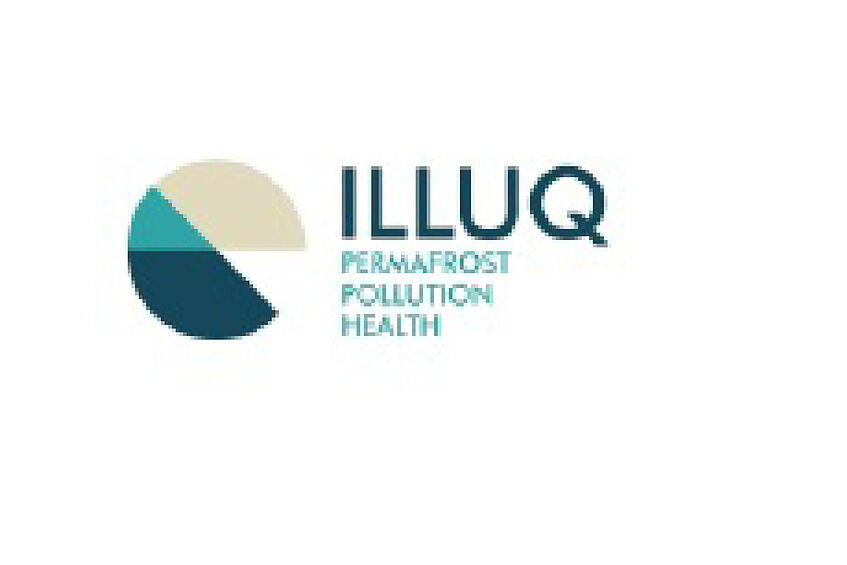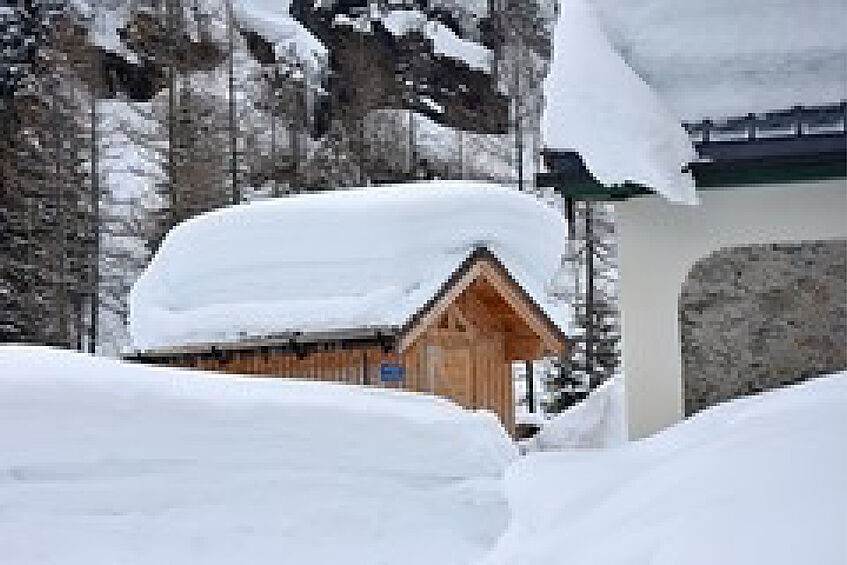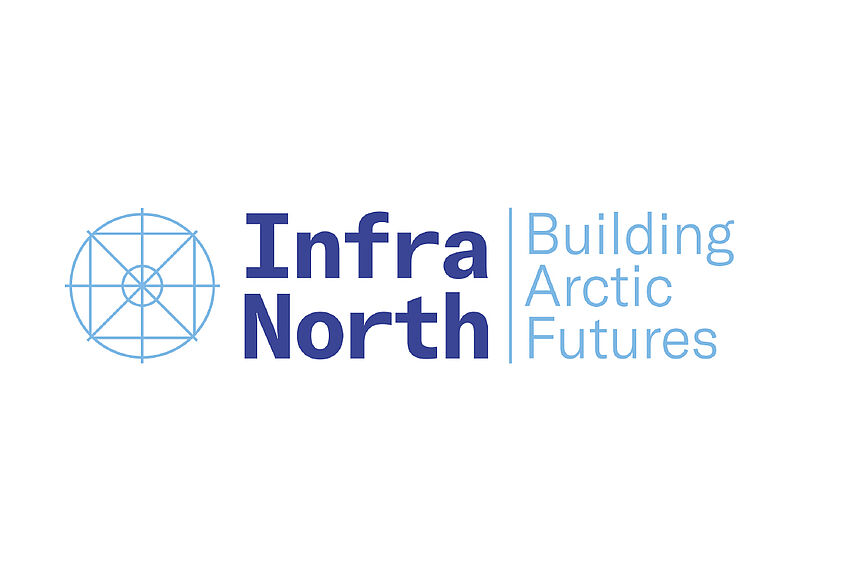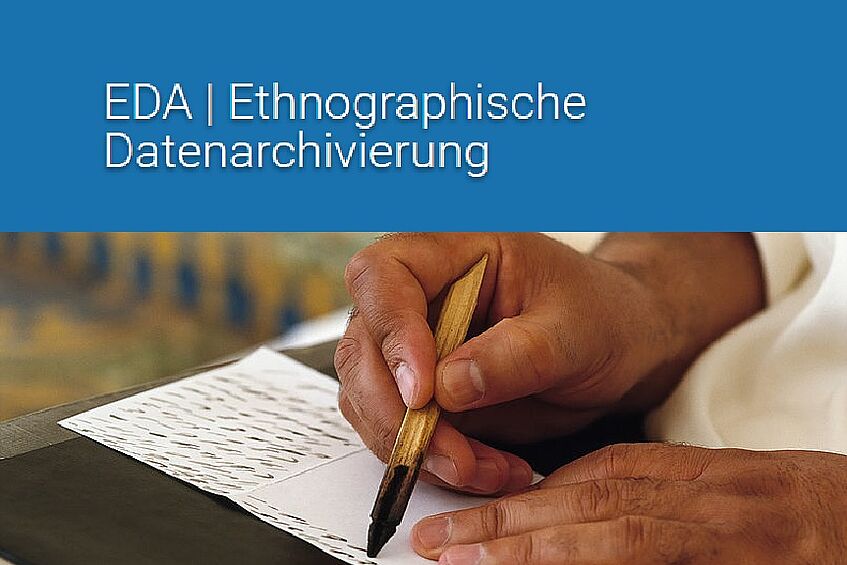Biocultural Heritage in Arctic Cities
Resource for Climate Adaptation?
Hard Facts
Projektdauer: April 2024 - März 2027
Fördergeber: FFG for Belmont Forum
Projektleitung am IKSA: Olga Povoroznyuk
Team am IKSA: Peter Schweitzer
Partnerinstitutionen: George Washington University, USA (consortium lead), Nancen Environmental and Remote Sensing Center, Norway; Art Science International Institute, France; Indigenous, environmental and arts NGOs in the USA and Norway
-
Projektbeschreibung
The project applies the concept of biocultural heritage, combining the elements of natural environment, material and spiritual culture to explore the potential of urban green and subsistance spaces and associated forms of Traditional Ecological Knowledge (TEK) and human-environment relationships in climate adaptation. Our main research question is, "Can biocultural heritage situated in urban landscapes serve as a resource for climate adaptation in Arctic cities?". In order to answer this question, we will work with local and Indigenous communities in Fairbanks and Nome in the USA, and Kirkenes and Tromsø in Norway. The project team, consisting of social and natural scientists, artists and activists, will combine quantitative and qualitative methods of social anthropology, human geography, climate science and remote sensing. The integration of scientific data with Indigenous long-term observations and artistic explorations should lead to publicly accessible, co-produced and place-specific arts and science products, including academic articles, disseminated via online media, as well as through an art+science exhibition.
SORGERÄUME
Ein ethnografisches Filmprojekt
Hard Facts
Projektdauer: Februar - September 2024
Fördergeber: LBG Open Innovation in Science Impact Lab
Projektleitung: Sanderien Verstappen
Team: Elaine Goldberg, Helen Vaaks
-
Projektbeschreibung
The ethnographic film project "Sorgeräume" is a cooperation between the Vienna Visual Anthropology Lab and the Ludwig-Boltzmann-Gesellschaft. Under the project supervision of Sanderien Verstappen, Elaine Goldberg and Helen Vaask will be conducting camera-based ethnographic research in the LBG Open Innovation in Science Impact Lab "Caring Communties for Future". The focus will be on care practices and transdisciplinary research processes. The outcome will be a short film.
ANTHROFUTURE
The anthropology of the future: An art world perspective
Hard Facts
Projektdauer: Januar 2024 - Dezember 2028
Fördergeber: ERC: European Research Council
Projektleitung: Manuela Ciotti
ILLUQ
Permafrost-Pollution-Health
Hard Facts
Projektdauer: Januar 2024 - Dezember 2027
Fördergeber: European Commission - Horizon Europe
Projektleitung (am IKSA): Peter Schweitzer
Team (am IKSA): Susanna Gartler, Alexandra Meyer, Olga Povoroznyuk

-
Projektbeschreibung
Permafrost underlies 22% of the Northern Hemisphere's exposed land surface and is thawing at an alarming rate as a direct consequence of climate change. Permafrost thaw releases large quantities of organic matter and contaminants into the environment. Contaminants, including heavy metals, persistent organic pollutants and microbiological agents locked in permafrost, are a risk for both human and animal health. In addition, permafrost thaw dramatically impacts infrastructure in local communities with wide-ranging consequences for health, economy, and society. Yet the social, physical and health components of permafrost thaw have traditionally been studied in isolation, leading to inadequate policy options that ignore the holistic nature of the threat. There is a need for an integrated and participatory approach to the complex issues at the overlap between climate change, permafrost thaw, infrastructure damage, contaminants, health and well-being and for solutions founded on the cultural, natural and social frameworks of local communities. ILLUQ is an interdisciplinary project rooted in participatory research with local stake- and rightsholders. Its mission is to tackle this need by providing the first holistic approach to permafrost thaw, pollution, One Health and well-being in the Arctic and delivering timely products on the risks from contaminant release, infrastructure failure and ecosystem changes to stakeholders. ILLUQ's endeavor is a direct answer to the pressing needs of communities on potentially disappearing permafrost. It targets the missing link between studies performed by scientists, engineers and consultants in local communities and solutions with local stake- and rightsholders focusing on the long-term implications of decision-making in the context of permafrost thaw, a time frame generally overlooked in existing governance frameworks.
Less is More
De-Prescribing Pharmaceuticals for Patient Safety and Sustainable Public Health
Hard Facts
Projektdauer: Mai 2023 - April 2026
Fördergerber: WWTF
Projektleitung: Janina Meillan-Kehr
Co-Projektleitung: Lisa Lehner (am IKSA), Igor Grabovac (MedUni Wien)
Webseite: https://health-matters.univie.ac.at/projects/lessismore/

-
Projektbeschreibung
Today, the right to health is often enacted as a right to access pharmaceuticals. This pharmaceuticalization of public health creates both opportunities for relief and new risks for patient safety and sustainability such as overmedicalization, waning effectiveness, and iatrogenic harm. In health policy making, a “less is more” approach of de-prescribing has become part of quaternary prevention with optimization of services at its core. Existing policies focus on guidelines for providers and indirect user regulation. Yet, little is known about provider and user experience or circulation pathways–pharmaceuticals’ “cultural efficacy”–that could inform a more context-sensitive, evidence-based policy approach.
Verhandlungen der Smartphone-Sucht
Hard Facts
-
Projektbeschreibung
Obwohl die Smartphone-Sucht nicht offiziell als psychiatrische Störung anerkannt ist, ist sie weltweit ein beliebtes Thema im öffentlichen Diskurs, insbesondere im Zusammenhang mit den sogenannten Smartphone-Zombies. Bislang ist die Forschung zur Smartphone- und Internetsucht jedoch noch begrenzt: Sie basiert häufig auf quantitativen Erhebungen von Forscher*innen und Expert*innen für psychische Gesundheit, die eher willkürlich und Top-Down festlegen, wann die Zeit, die mit einem Smartphone verbracht wird, problematisch wird. Darüber hinaus werden solche Studien in der Regel mit Studierenden in englischsprachigen Ländern durchgeführt und gehen davon aus, dass das Verhalten von Smartphone-Nutzer*innen universell ist, unabhängig von sozialen und kulturellen Unterschieden, historischen Einstellungen zu Medien und der Perspektive der Patient*innen.
Dieses Projekt zielt daher darauf ab, den Bedarf an nuancierter, qualitativer Forschung zu diesem Thema zu adressieren, um soziale und kulturelle Unterschiede zu berücksichtigen und die Perspektiven derjenigen einzubeziehen, die von Smartphone-Sucht oder verwandten Phänomenen wie Internet- und Spielsucht betroffen sind. Zu diesem Zweck konzentriert sich das Projekt darauf, wie betroffene Jugendliche und junge Menschen die Smartphone-Sucht selbst erleben und konzeptualisieren, insbesondere in Bezug auf die Themen der Schuld und Selbstkontrolle.
Um die Perspektive der Betroffenen zu erfassen, wird eine Sozial- und Kulturanthropologin eine umfangreiche Feldforschung in einer auf Smartphone-, Spiel- und Internetsucht spezialisierten österreichischen Klinik durchführen. Während mehrerer Monate wird die Forscherin Zeit mit Patient*innen und medizinischem Personal verbringen, an verschiedenen Aktivitäten teilnehmen und Interviews führen. Im Rahmen des Projekts wird nicht nur untersucht, wie die Smartphone-Sucht von jungen Menschen und Fachleuten aus dem Bereich der psychischen Gesundheit konzeptualisiert wird, sondern es werden auch junge Menschen aktiv in die Diskussionen über das Phänomen einbezogen, indem sie ein gemeinsames Kunstwerk schaffen, das ihre Ansichten zum Ausdruck bringt. Dazu gehören partizipative Workshops mit Patient*innen, Fachleuten aus dem Bereich der psychischen Gesundheit, Designer*innen digitaler Interfaces und Künstler*innen, die die Schaffung eines gemeinsamen audiovisuellen Werks ermöglichen, das im Anschluss öffentlich ausgestellt werden soll.
Das Projekt ist am Institut für Kultur- und Sozialanthropologie der Universität Wien angesiedelt. Dem interdisziplinären Beirat gehören Forscher*innen der Maynooth University (Irland), der Freien Universität Berlin (Deutschland), der Kunsthochschule Weißensee Berlin (Deutschland), der Masaryk University (Tschechische Republik) und der RMIT University Melbourne (Australien) an.
Über Krisen reden - Making sense of multiple crises
Wie ältere Menschen in Wien Pandemie, Ukraine-Krieg, Energiekrise und drohende Altersarmut narrativ verarbeiten
Hard Facts
Projektdauer: 2023 - 2024
Fördergeber: MA7, Stadt Wien
Projektleitung: Monika Palmberger
Team: Barbara Götsch
Snow2School
Ein interdisziplinärer Ansatz zur Erfassung von Veränderungen des Schnees in Grönland und Österreich
Hard Facts
Projektdauer: 2023-2025
Fördergerber: OEAD Sparkling Sience
Projektleitung: Wolfgang Schöner (Universität Graz), Peter Schweitzer (am IKSA)
Team (am IKSA): Theresa Gusenleitner, Sophie Elixhauser
Webseite: https://www.snow2school.com/

Photocredit © Schöner
-
Projektbeschreibung
Schnee ist eine Schlüsselgröße des Klimawandels, der diesen und mit ihm verbundene Auswirkungen deutlich sichtbar macht. Die Veränderungen der Schneedecke in den letzten ca. 150 Jahren sind für die Alpen aus Messungen gut belegt. Völlig anders ist jedoch die Situation in Grönland. Obwohl auch dort der Schnee eine zentrale Rolle für die Bevölkerung spielt, liegen kaum Messungen für diese riesengroße Insel vor.
Diese Forschungslücke motiviert das übergeordnete Forschungsziel von Snow2School, nämlich die Veränderungen der Schneebedingungen am Beispiel von Uummannaq (Grönland), durch eine neue Rekonstruktionsmethode basierend auf Photographien, die für Eisenerz (Österreich, Alpen) entwickelt und getestet wird, besser quantifizieren zu können. Gleichzeitig möchte Snow2School ein besseres Verständnis über den Einfluss der Schneeveränderungen (vor dem Hintergrund des Klimawandels) auf das Leben der Menschen in Grönland und Österreich genieren. Snow2School verfolgt damit einen interdisziplinären Forschungsansatz mit starker Citizen Science Unterstützung.
INFRANORTH
Building Artic Futures: Transport Infrastructure and Sustainable Northern Communities
Hard Facts
Projektdauer: Jänner 2021 - Dezember 2025
Fördergeber: ERC: European Research Council
Projektleitung: Peter Schweitzer
Team: Ria-Maria Adams, Philipp Budka, Alexandra Meyer, Olga Povoroznyuk, Alexis Sancho-Reinoso, Katrin Schmid, Elena Davydova, Cristobal Adam Barrios
studentischer Mitarbeiter: Ilya Krylov
Projektadministration: Susanna Heubusch
Webseite: https://infranorth.univie.ac.at/

-
Projektbeschreibung
The “new Arctic” is attracting global attention for a variety of reasons, including geopolitics, militarisation, resource extraction, wilderness tourism, and calls for environmental protection in the face of rapid climate change. Many of these activities necessitate the construction or upgrading of transport infrastructures in this relatively remote, inaccessible and scarcely-populated part of the world. While these large-scale infrastructures are mostly sponsored by outside interests, they can have profound impacts on local residents.
We propose to focus on how residents of the Arctic, both indigenous and non-indigenous, engage with these infrastructures, and to examine the intended and unintended consequences these projects have on their lives.
Our challenge is to understand whether existing and planned transport infrastructures will support permanent human habitation and sustainable communities in the Arctic, or whether they will strengthen a trend of substituting permanent residents with “temporaries” like shift workers, tourists and military personnel. In addressing this challenge, we adopt a relational affordance perspective, which will document the material and non-material entanglements of local residents and transport infrastructures in three distinct arctic regions (Russian Arctic, North American Arctic, European Arctic).
Our approach combines ethnographic fieldwork with mapping exercises and archival research. Our project team of anthropologists and geographers will use quantitative population data to upscale to the regional level, and regional patterns will be contrasted and compared to reach conclusions on the panarctic level.
We will use interactive scenarios to collect input and to develop decision options. Our overarching research question – What is the role of transport infrastructures in sustaining arctic communities? – is of urgent relevance on both theoretical and practical levels, and by addressing it we will contribute locally informed results to critical conversations about arctic futures.
Europe-Asia Research on Forced Migration
Hard Facts
Projektdauer:
Phase I 2019-2021: "Annual Research and Orientation Programme in Migration and Forced Migration Studies with Particular Focus on South Asia and its European-Asian Dimension."
Phase II 2021-2023: "Justice, Protection and Government of the People. A Two-Year Research and Orientation Programme on Protection and Democracy in a Post-COVID World."
Fördergeber: Foundation of Open Society
Projektleitung: Ayse Caglar (IKSA und IWM), Ranabir Samaddar (Mahanirban Calcutta Research Group)
Team: Ana Cukovic
Webseite: https://www.iwm.at/program/europe-asia-research-platform-on-forced-migration
-
Projektbeschreibung
The Europe-Asia Research on Forced Migration is a collaboration between the Institut für die Wissenschaften vom Menschen (Institute for Human Sciences, IWM) and Mahanirban Calcutta Research Group (MCRG). The first research project "Annual Research and Orientation Programme in Migration and Forced Migration Studies with Particular Focus on South Asia and its European-Asian Dimension" (2019 until 2021) focuses on establishing the collaboration and cooperation between European and Asian institutions and academics. It was established to foster working toward innovative knowledge production on forced migration and bordering regimes. Series of activities and workshops aim to enhance research capacities and facilitate the exchange of knowledge and policy expertise in forced migration studies in and between Europe and Asia. Bringing together scholars, policy makers and practitioners from different disciplines and regions, the platform aspires to decentering scholarship, debates, and policies on forced migration. The project continues through "Justice, Protection and Government of the People. A Two-Year Research and Orientation Programme on Protection and Democracy in a Post-COVID World" grant until Summer 2023.
The Europe-Asia Research hosts Seminar Series on Forced Migration at the University of Vienna. The events bring speakers from a range of disciplines and scholarship interests to discuss multiple geographical and temporal dimensions of migration. Topics ranging from changing regimes and forms of governance of migrants/refugees; the solidarity networks and demands for social justice entangled with increasing inequalities, austerity politics, and racism; the institutional components regulating and managing different forms of displacement; incorporation and exclusion of refugees and migrants from labor markets and protection regimes along the lines of gender, race, religion, and work among others. The Seminar Series aims to expand current knowledge on the specificities of policies and debates on refugees and migrants in the context of forced migration and bordering regimes.
Ethnographische Datenarchivierung
Hard Facts
Projektdauer: Februar 2017 - laufend
Projektleitung: Wolfgang Kraus, Birgit Kramreither, Igor Eberhard
Webseite: http://eda.univie.ac.at/

© Wolfgang Kraus
-
Projektbeschreibung
Forschung in der Kultur- und Sozialanthropologie findet meist im engen persönlichen Kontakt mit den Beforschten statt. Die eigene Person und die eigene Biografie sind immer Teil dieses Prozesses. Ethnographische Forschung stellt hohe Ansprüche an methodische Kenntnisse, aber auch an Reziprozität, Reflexivität und Ethik. Aus diesen Gründen bringen die Archivierung und Nachnutzung von ethnographischen Daten große Herausforderungen pragmatischer, ethischer und rechtlicher Art mit sich – Herausforderungen, denen sich das Pilotprojekt stellt, um eine an die Eigenarten ethnographischer Forschung angepassten Archivierungsstrategie zu entwickeln.
